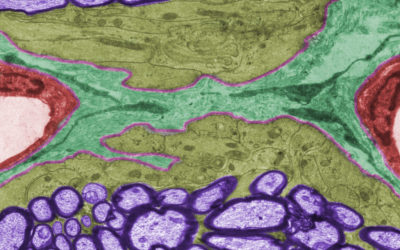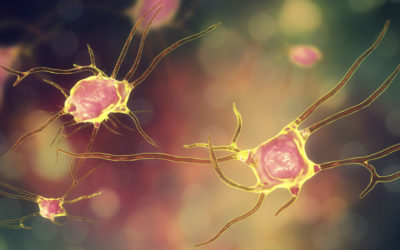Quick Hits
Daily brief research updates from the cognitive sciences

Yes, meditation can help with pain by changing your experience of it. I reported on that here. Another piece of research just published shows that how experienced meditators and novice meditators and their brains deal with pain slightly differently.
Joseph Wielgosz of the University of Wisconsin-Madison and Tor Wager, a neuroscientist at Dartmouth College, tried to identify signatures in the brain of pain and how this changes with mindfulness training.
They did this by recruiting participants undergoing an eight-week mindfulness training at the university. Pain was measured by a standardised process of applying heat to the arm. What they noticed is that in those undergoing mindfulness training signals related to the intensity of pain were reduced. That is a good thing.
However, what was intriguing is that they noticed that in those who had undergone more training and were more experienced meditators that peripheral messaging in the brain was different. That is pathways that seem to deal with attention and expectation were activated differently.
So, it seems that more experienced meditators’ brains deal with pain responses differently to novices. But of note is that in both groups pain was reduced through meditative techniques – and that is in itself a good sign and one that has been supported by other research.
Therefore, if you are in pain, do consider meditation as a viable route to pain management. With mostly positive side effects.

Andy Habermacher
Andy is author of leading brains Review, Neuroleadership, and multiple other books. He has been intensively involved in writing and research into neuroleadership and is considered one of Europe’s leading experts. He is also a well-known public speaker, speaking on the brain and human behaviour.
Andy is also a masters athlete (middle distance running) and competes regularly at international competitions (and holds a few national records in his age category).
Reference
Joseph Wielgosz, Tammi R.A. Kral, David M. Perlman, Jeanette A. Mumford, Tor D. Wager, Richard J. Davidson.
Neural Signatures of Pain Modulation in Short-Term and Long-Term Mindfulness Training: A Randomized Active-Control Trial.
American Journal of Psychiatry, 2022
DOI: 10.1176/appi.ajp.21020145
More Quick Hits
How Your Brain Eats Itself – To Improve Memory
Your brain eats itself – gruesome eh! Actually this appears to be a good thing most of the time…
A Regular Routine Makes You Happier and Smarter
Recent research just published shows that a regular routine with plenty of activity protects against depression and preserves cognitive function!
Like Smart Humans, Smart Jays Exhibit Self Control
Jays are smart, that is known. Now we know they can exhibit self-control – but only if they are smart themselves.
Your Dog Can Smell When You’re Stressed – And Reduce Stress
The benefits of pets – but it depends on how healthy your relationship is with them.
Neurons in a Dish Learn to Play Pong
A group of neurons in a petri dish can learn to play a computer game – amazing!
Chirp Up! Birdsong Improves Mental Wellbeing
We know birdsong has positive benefits – and this research is showing by just how much…






